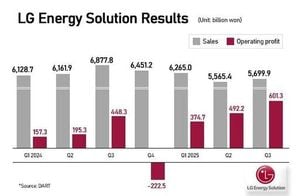In a challenging global economic environment, Edgar Amador Zamora, Mexico's new Secretary of Finance, is preparing to tackle multiple pressing issues that threaten the country's financial stability. The ongoing inflationary trends not only in Mexico but worldwide have raised concerns among economists and policymakers, who are scrambling to find solutions that balance consumer relief with economic growth. Amador, an economist from the National Autonomous University of Mexico (UNAM), stepped into this complex role at a time when various economic forecasts from banks and international organizations are predicting downturns for the Mexican economy, with some even suggesting a looming recession.
One of the most pressing issues that Amador must address is the persistent inflation rate, which has impacted consumer prices significantly. The government faces the challenge of implementing fiscal policies that can alleviate some pressure on consumers while simultaneously promoting growth in other sectors. The coordination between fiscal and monetary policy will be crucial in developing a cohesive strategy to manage this economic turmoil.
In light of these economic uncertainties, Amador stressed the need to foster a climate of confidence to incentivize both national and foreign investment. “We must create an environment where businesses are willing to invest their capital in Mexico,” he stated, emphasizing that building trust is essential to drive economic growth and tackle unemployment.
Moreover, the efficient management of public resources remains a priority for Amador. In his view, transparency and accountability are fundamental to ensure that public resources are utilized effectively. This will not only enhance government credibility but also foster greater public trust and encourage private sector participation.
Amador has made a commitment to maintaining open lines of communication with various sectors of society. This dialogue is vital to navigating the economic challenges ahead. “We must involve the citizens in our discussions and decision-making processes,” he said. By encouraging citizen participation, Amador hopes to cultivate a collaborative environment that can effectively tackle the significant economic hurdles that lie ahead.
The economic landscape is further complicated by the evolving trade policies of the United States, especially under the current administration, which has caused considerable volatility in investment flows. Many businesses are hesitating to commit to new projects amid fears of potential tariffs and other trade restrictions. As a result, the overall state of the economy is under close scrutiny as indicators of growth and stability fluctuate.
Despite these challenges, however, Amador's administration is focused on policies that could spur growth and create jobs in the long term. The current public investment strategies aimed at promoting development in the southeast region of Mexico have largely been unsuccessful, as evidenced by job losses in key states including Tabasco, Chiapas, Campeche, and Yucatán. These areas, instead of witnessing job growth, have seen a downturn, prompting the Secretary to reassess public investment strategies to ensure that resources are directed where they can be most effective.
According to reports, from October 2024 to February 2025, Tabasco alone lost over 12,000 formal jobs, while Yucatán, Oaxaca, and Campeche also suffered significant job losses. Meanwhile, some northern and western states, like Nuevo León and Jalisco, have reported an increase in formal employment, showcasing a contrasting scenario that could serve as a model for other regions.
Additionally, as more than 125,000 women entrepreneurs have benefitted from financial and technological guidance with the goal of expanding to 400,000 in the near future, Amador's administration aims to bolster the role of women in the business sector. This initiative comes in response to a recent study highlighting the obstacles women face in transforming ideas into sustainable businesses, where financial constraints and childcare remain significant barriers. Mastercard has been pivotal in this mission, promoting integration of women into the financial sphere and stimulating interest among young girls in technology.
Amid these transitions, the ongoing dialogue regarding the potential merger between Sabadell and BBVA demonstrates the volatility of the financial sector. Even with the necessary authorizations for the merger in Mexico, resistance continues in Spain, reflecting broader apprehensions about market consolidation and economic stability.
Moreover, environmental education has emerged as a vital area of focus. As pollution continues to escalate, organizations like the Civil Association Ecology and Business Commitment (ECOCE) have been proactive in promoting environmental awareness, reinforcing the idea that education is key to fostering sustainable practices among businesses and government entities alike.
As Edgar Amador embarks on his term as Secretary of Finance, the multifaceted nature of the economic challenges demands a strategic approach that balances transparency, effective resource management, and proactive citizen engagement. The success of these initiatives will not only dictate the Mexican economy’s resilience in the face of external pressures but also shape the future fiscal landscape of the country.





